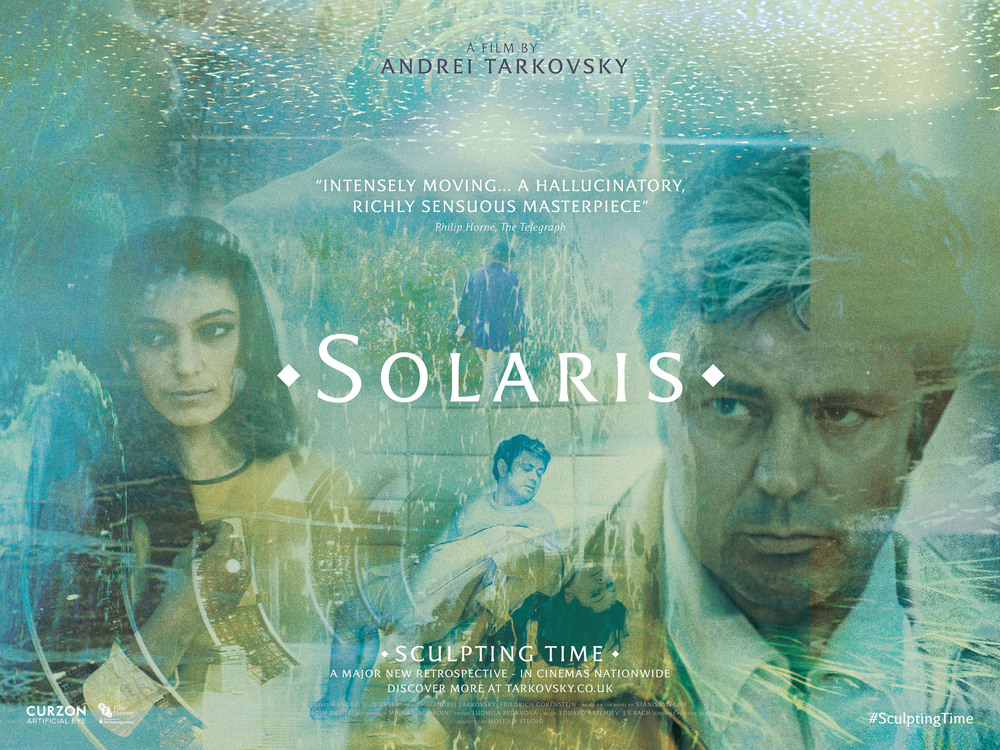Solaris (1972)

“Solaris,” released in 1972, is a groundbreaking Soviet science fiction film directed by the visionary Andrei Tarkovsky. Based on the 1961 novel by Stanisław Lem, the film transcends typical genre conventions, presenting a profound exploration of human consciousness, memory, and the nature of reality. With notable performances from Donatas Banionis as psychologist Kris Kelvin and Natalya Bondarchuk as his ethereal counterpart, Hari, “Solaris” invites viewers to ponder complex philosophical questions in a visually stunning and emotionally charged narrative.
The film begins with Kris Kelvin’s arrival at a space station orbiting the mysterious planet Solaris. The station’s crew is experiencing inexplicable phenomena that defy scientific explanation. As Kelvin learns more about the psychological effects of the planet on the crew, he grapples with the nature of reality and the essence of human experience. Solaris, a vast oceanic entity, possesses the ability to materialize the innermost thoughts and memories of those who come into contact with it, creating tangible manifestations of their past. This central premise serves as the foundation for exploring themes of grief, love, and the human psyche.
Tarkovsky’s directorial style is marked by long takes, meditative pacing, and a focus on the emotional landscapes of his characters. The cinematography, crafted by Vadim Yusov, is hauntingly beautiful, with sequences that evoke a dreamlike quality. The lush imagery, including the iconic scenes of the ocean surface and the stark interiors of the space station, creates an atmosphere that blurs the lines between reality and illusion. Tarkovsky’s deliberate use of slow motion and visual metaphors encourages viewers to engage deeply with the film’s philosophical underpinnings.
One of the film’s most poignant elements is its exploration of memory and the human condition. As the planet Solaris conjures manifestations of Kelvin’s deceased wife, Hari, he is forced to confront his unresolved feelings of guilt and longing. This relationship serves as a microcosm of the broader human experience, reflecting the complexities of love and the inescapable nature of memory. Kelvin’s interactions with Hari raise profound questions about identity and existence: Are these manifestations truly the people we loved, or mere projections of our desires and regrets?

The film also delves into the limitations of human understanding and the struggle to communicate profound emotions. The characters grapple with their inability to articulate their experiences, highlighting the ineffable aspects of existence. This theme resonates strongly throughout the film, particularly in the contrast between the rationality of science and the emotional depth of human experience. Tarkovsky suggests that the pursuit of knowledge, while noble, often falls short of comprehending the intricacies of the human soul.

“Solaris” is not merely a narrative about a space mission; it serves as a philosophical meditation on existence itself. The film invites viewers to consider the nature of reality, the weight of memory, and the power of love. It challenges conventional notions of storytelling by prioritizing introspection over action, creating a contemplative space for reflection. As Kelvin confronts his past and seeks answers, the film transcends the boundaries of science fiction, becoming a timeless exploration of what it means to be human.

Despite its initial mixed reception in the West, “Solaris” has since been recognized as one of the most significant works in the science fiction genre. Tarkovsky’s unique vision and his ability to intertwine complex themes with striking visuals have cemented the film’s legacy. It stands alongside other masterpieces of cinema as a work that challenges viewers to engage with the deeper questions of existence, making it a profound and lasting contribution to both science fiction and philosophical cinema.

In conclusion, “Solaris” is a masterful blend of science fiction and philosophical inquiry. Through its rich imagery, compelling performances, and deep thematic exploration, the film transcends the conventions of its genre to present a moving meditation on memory, love, and the human condition. Tarkovsky’s work continues to resonate with audiences, reminding us that the mysteries of existence often lie beyond the reach of reason, inviting us to embrace the complexities of our own experiences.











